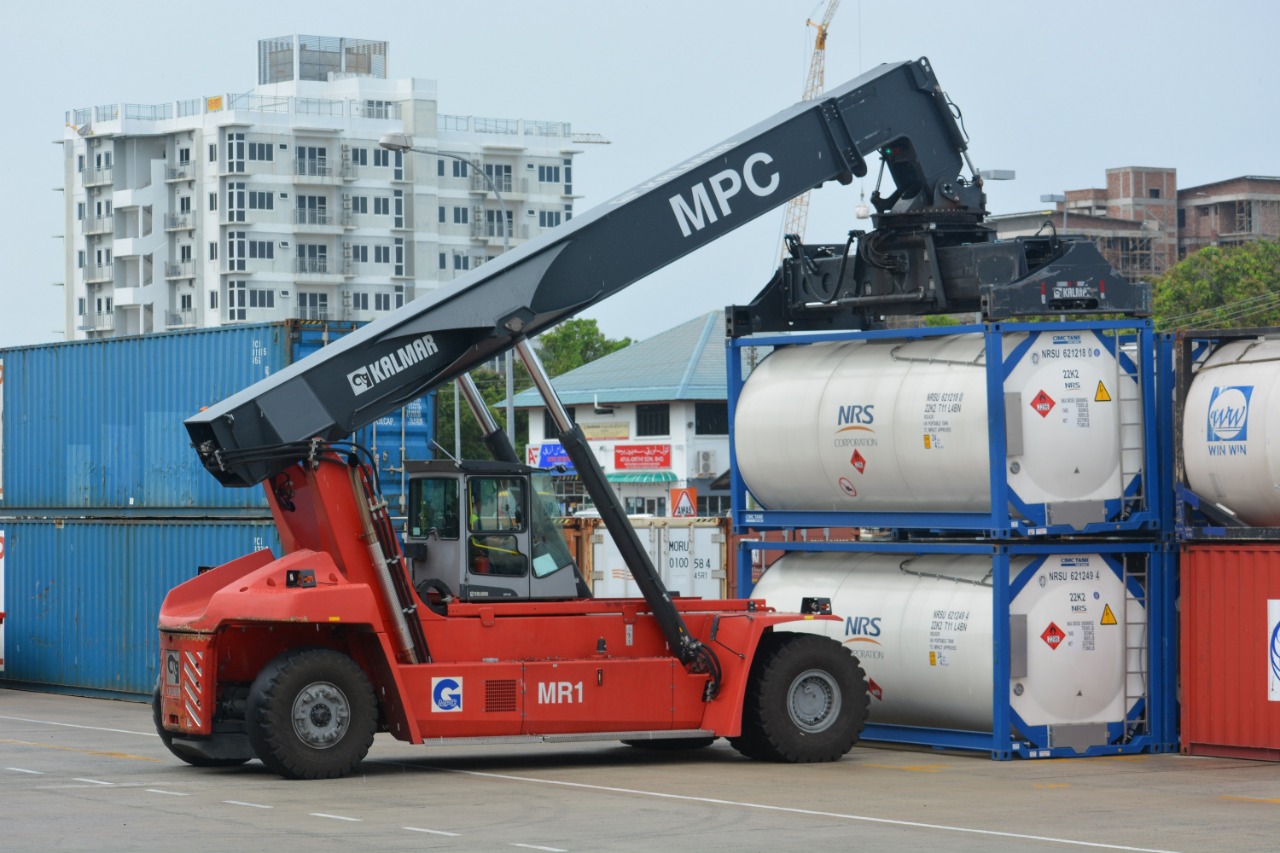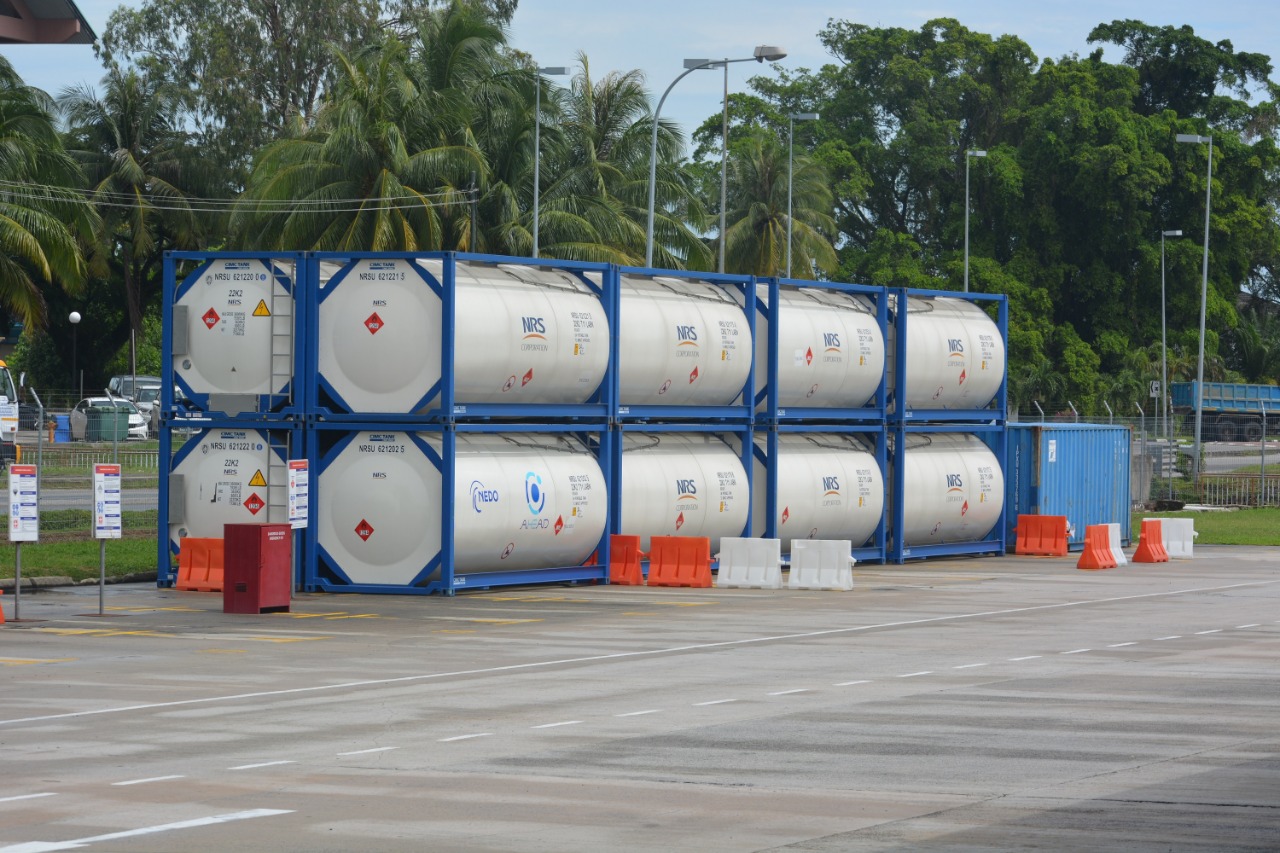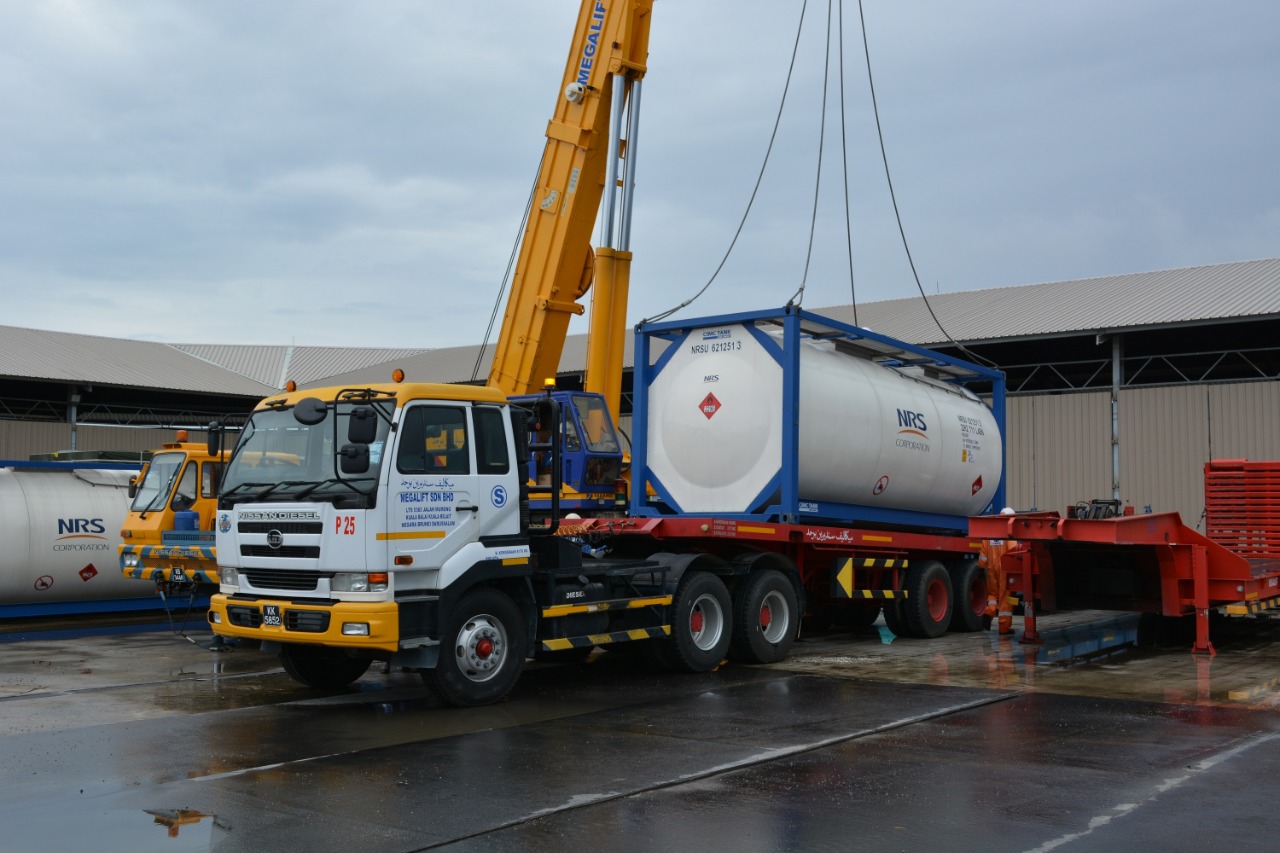The World's First International Hydrogen Supply Chain realised between Brunei and Japan
05 May 2020
The World's First International Hydrogen Supply Chain between the Government of Brunei Darussalam and Japan reached a milestone after successfully extracting H2 from a liquid organic hydrogen carrier (LOHC) shipped from Brunei. The demonstration project is operated by the Advanced Hydrogen Energy Chain Association for Technology Development (AHEAD) led by the Japanese consortium, which includes Japanese conglomerates Mitsubishi, Nippon Yusen, Mitsui and Chiyoda Corp.
The project is in line with His Majesty the Sultan and Yang Di-Pertuan of Brunei Darussalam's vision for advancing long-term green energy programs for the nation, as delivered in the New Year Titah for 2020.
The liquefied hydrogen was produced by a hydrogenation plant, operated by the Japanese Consortium at Sungai Liang Industrial Park (SPARK) with the first hydrogen was exported from Muara Port to Japan on 17th November 2019. Hydrogen produced in Brunei's hydrogenation plant is shipped more than 4,000km inside containerised tanks to a dehydrogenation plant in the Japanese City of Kawasaki, where H2 is extracted. The project will run by the end of the fiscal year of 2020.
The Advanced Hydrogen Energy Chain Association for Technology Development (AHEAD) demonstration project aims to show that a global hydrogen supply chain can be established using LOHC — a chemical that can safely transport hydrogen at room temperature and ambient pressure. It aims to realize Global Hydrogen Transport and Supply Technology for full-scale Hydrogen Power Generation by 2030.
This method allows a new way to get hydrogen around the globe. The alternative method is to turn hydrogen directly to liquid but this requires gaseous hydrogen to be cooled to cryogenic temperatures below −253°C and is expensive.
The Demonstration Project, a subsidized "Technology Development Project to establish Hydrogen Society/Technology Development for the Utilization of Large Scale Hydrogen Energy", is funded by the National Research and Development Agency, NEDO, and demonstrates "The Hydrogen Supply Chain utilizing the Organic Chemical Hydride Method". The technology utilizes Hydrogen for CO2 free power generation, which can contribute to fulfill the Paris Agreement requiring greenhouse gas reductions to combat climate change. The Project was initiated to support the Phase II of the "Strategic Road Map for Hydrogen and Fuel Cells", issued by Japan's Ministry of Economy, Trade and Industry (METI) in 2014 and revised in 2016. This Project is supported and facilitated by the Ministry of Energy in Brunei Darussalam.
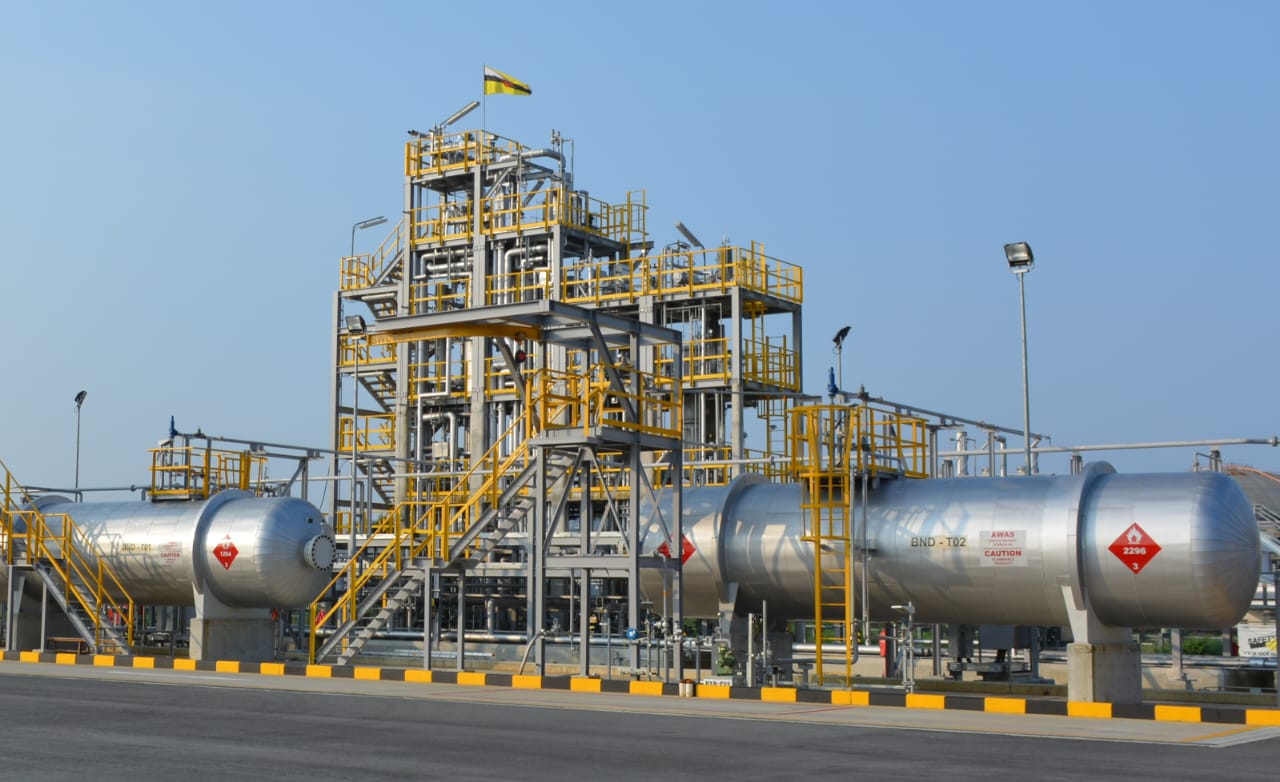
The Hydrogenation Plant at Sungai Liang
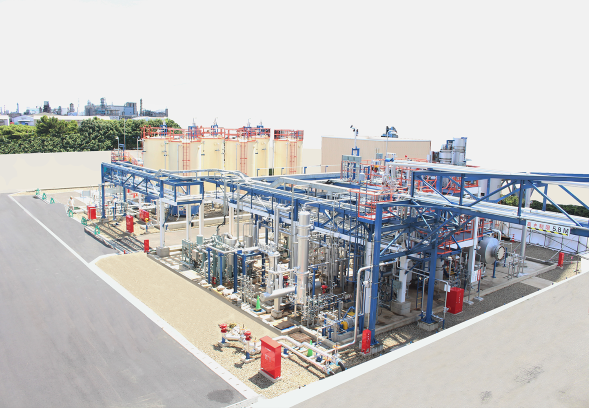
The Dehydrogenation Plant at Kawasakl, Japan.
